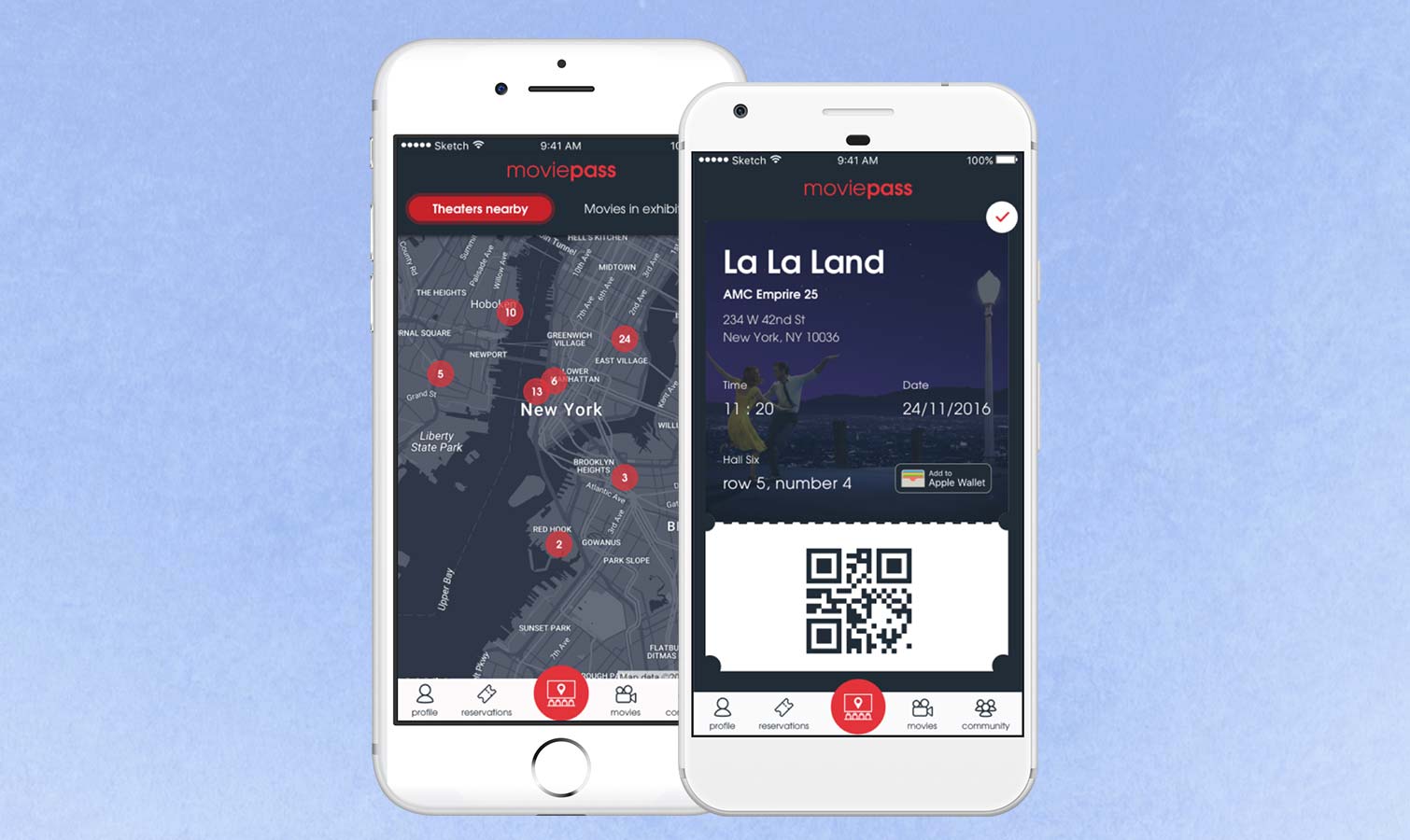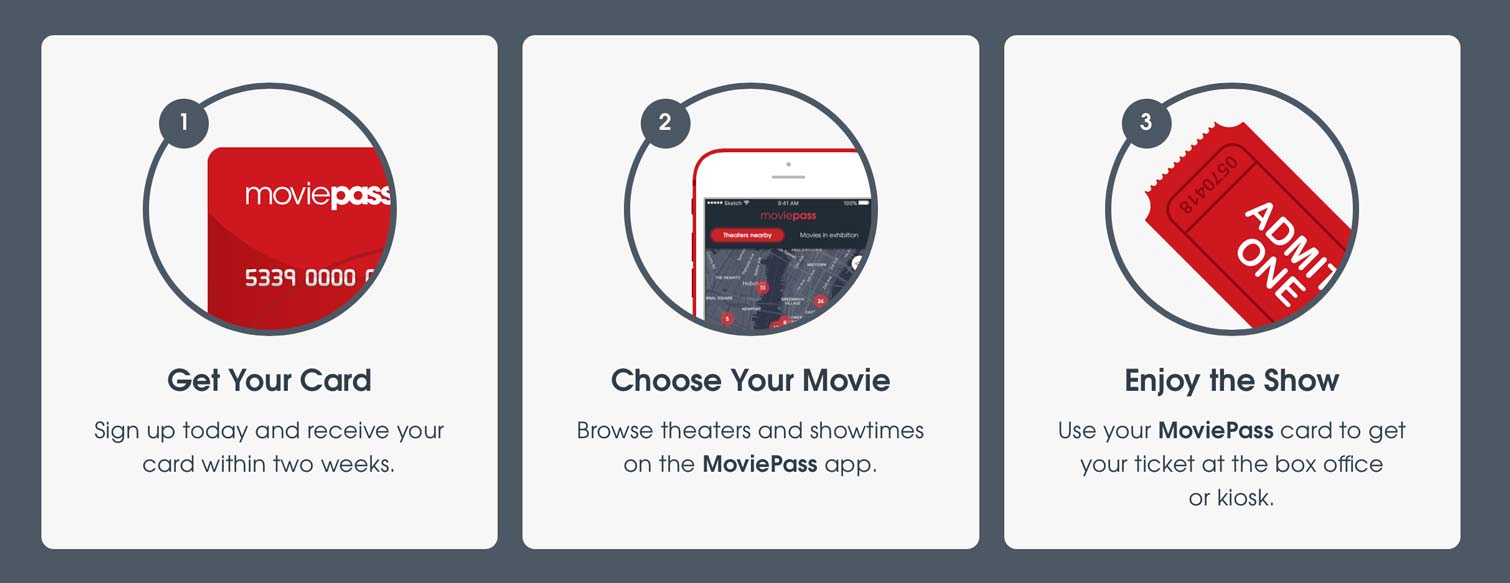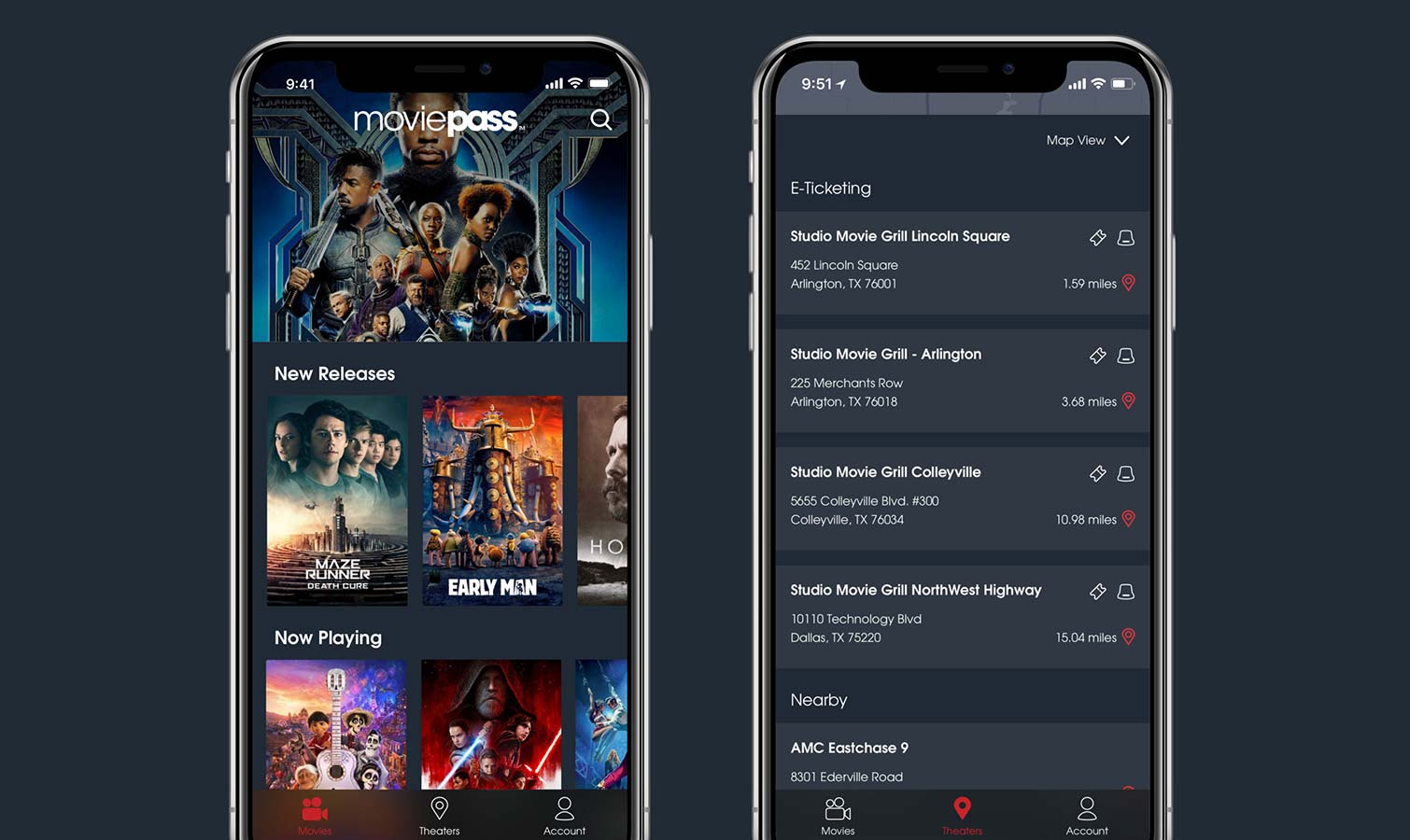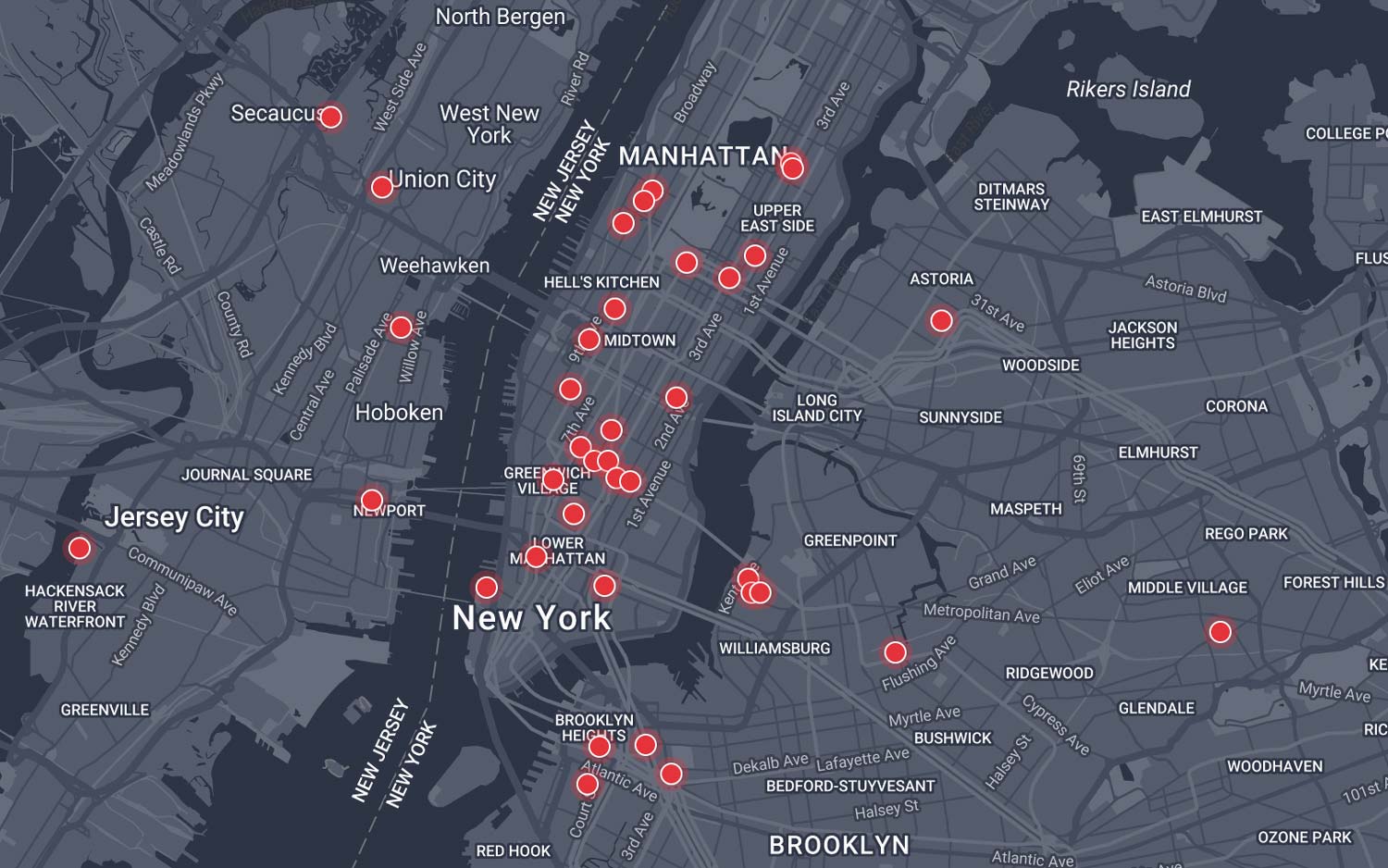MoviePass FAQ: A Subscriber Tells You Everything You Need to Know
MoviePass offers you the chance to see a movie every day for less than $10 a month. Is it too good to be true?
March 19 Update: Moviepass is bringing back uncapped accounts with its $9.95 per month pricing details below.
A trip to the movies used to be an affordable date night or family outing. Now, with ticket prices close to $9 a pop on average (and more than $15 a person in New York City), waiting for the latest blockbuster to come to Netflix is more tempting than ever.

So when movie-ticketing service MoviePass changed its business model last summer to offer a Netflix-style subscription that lets you see a movie a day for a flat fee of $9.95 a month, I confess that I immediately signed up.
The service isn't without its downsides, as I've learned. And MoviePass announced July 31, 2018 that it plans to raise its price to $14.95 a month, plus limit the availability of new releases. Read on to see what you get for your money and whether MoviePass is worth some of the hassles that come with it.
What's going on with MoviePass?
After months of turbulent trials and testing, MoviePass is trying to rekindle the magic of its early days. MoviePass Uncapped, unveiled on March 19, 2019, is an uncapped plan with a couple of giant asterisks.
Not only is it only offering $9.95 per month pricing to those who will pay for a year of service up front (that's $119.40), and those payments need to be placed through ACH (Automated Clearing House) / eCheck billing. If you don't want to pay annually, you're spending $14.95 per month.
On top of that, MoviePass states "Your movie choices may be restricted due to excessive individual usage which negatively impacts system-wide capacity." When you dive into the fine print, you see more worrisome details "MoviePass makes no guarantee on the availability to any particular theater, showtime, or title that is presented in our app. MoviePass ticket inventory may vary from specific theater ticket inventory. ... This means that MoviePass has the right to limit the selection of movies and/or the times of available movies should your individual use adversely impact MoviePass’s system-wide capacity or the availability of the Service for other subscribers."
This is limited-time pricing, a half-off discount from its standard $19.95 per month price.
What are the benefits of MoviePass?
For $9.95 a month, you can see a movie a day at any theater that accepts MoviePass. The company caused an uproar after eliminating that option in favor of a promotion that allowed you to see four movies per month and get three free months of iHeartRadio's All Access streaming service. Now the company is offering two plans: the original MoviePass Unlimited, and a cheaper, $7.95-a-month plan that offers three movies and three months of iHeartRadio access. The unlimited plan is clearly the better deal, but it's about to go up in price: Soon it will be $14.95 instead of $9.95.
In April 2018, MoviePass also changed its policy to prevent you from seeing specific movies more than once. It's unclear how the company determines which films are excluded from repeat viewings, but the company says the change is to "encourage you to see new movies and try something different."
On Jan. 24, 2019, MoviePass executive VP Khalid Itum revealed that the company plans to bring unlimited pricing plans back, but he had no further details on such a plan.
How is MoviePass so cheap?
MoviePass says its customers tend to see very few movies a year, so movie theaters win because the service encourages more people to give films a shot.
The service acts as a kind of insurance for people to give a movie a chance when it doesn't get great reviews or when it's an under-the-radar independent film. Basically, MoviePass doesn't expect anyone to actually see a movie every day. But knowing that you could makes you want to sign up for the service — at least that's the theory.

But aside from expecting you to not actually see as many movies as you could, MoviePass also plans to use the data you give it to make money.
"In the short term, we're already using the data to promote titles on behalf of the studios. Studios are paying us around $2 per ticket we buy in exchange for us marketing their film," MoviePass CEO Mitch Lowe told The Washington Post.
In the long term, other types of businesses would be happy to know where and when you spend your free time. MoviePass could be the company that tells them.
How do I set up my MoviePass account?
After you sign up for MoviePass, the company sends you a physical card in the mail. It looks like a normal debit card that you would use to pay for any transaction. Download the MoviePass app on your smartphone and sign up for an account.

You'll see a red banner at the top of the app telling you to activate your MoviePass card. Follow the prompts and enter your MoviePass debit card number. You can also take a photo of the card to activate it, much like you would with a debit card in Apple Pay. The app and the card are connected, so make sure you do this before you head to a theater.
After linking your MoviePass card to the MoviePass app, you can use the app to search for specific movies or just glance at what's playing at your closest theater. The MoviePass app does require location-tracking to be enabled, because you need to check in to a theater in the app. Some theaters allow you to reserve a ticket on MoviePass without being in close proximity to the theater, but those locations are few and far between.
Why do I need to check in to a theater?
Your physical MoviePass card acts as a debit card replacement; it's how you pay for the movie you want to see. After you pick a movie and a time, MoviePass will prompt you to check in so it can load the equivalent ticket amount onto your physical card.

MoviePass requires you to be within 100 yards of the theater you've picked, and you must use your card to purchase a ticket within 30 minutes. That way, MoviePass doesn't lose money on a ticket you have no intention of using.
How do I find out which theaters near me accept MoviePass?
When you open the MoviePass app and tap on Theaters, you'll see every nearby theater that accepts your MoviePass card.

In cities such as New York, there are a ton of theaters. Even chains that require you to pick a seat in advance work with MoviePass, including my personal fave, Alamo Drafthouse. Those theaters are a little tricker to book — more on that later.
What if the movie is sold out or I don't want to see it anymore?
If you change your mind or a ticket agent tells you there are no more seats available, you can cancel your reservation or change your check-in and pick a different movie. That way, you avoid missing out on using your one-movie-a-day privilege. Just open the MoviePass app and press "Cancel/change check-in."
Does MoviePass offer family memberships?
Unfortunately, no. Every MoviePass subscriber must have their own membership, and you can't use one person's account to purchase more than one ticket. Hopefully, this won't be the case forever.
Are there any theaters that don't work with MoviePass?
AMC Theatres and MoviePass have a fraught relationship. AMC was unhappy with MoviePass' decision to change its model to a flat fee, and while the companies seemed to mend their rift in January, MoviePass pulled support for a handful of AMC theaters, including locations in New York and Los Angeles. MoviePass says the theaters it works with are subject to change, so there's no guarantee that your favorite theater will always be included.
To verify if an independently owned theater in your city supports MoviePass, contact the theater directly or check the MoviePass app.
I read that MoviePass tracks my location all the time. Is that true?
MoviePass CEO Mitch Lowe made statements at a media conference in February 2018 that made it sound like his company tracks your location before you open the app and after you close it. That would mean it has a robust profile on where you go before and after you see a movie. He later said he was joking.
"The MoviePass app currently uses standard location services capabilities on an opt-in basis," Lowe said in a letter to MoviePass customers. "There are only two events that would prompt MoviePass to identify a member's location. These include when a member requests to search for theaters nearby and when a member requests to check in to a theater. Both events require both the app to be open and for the member to request the action. MoviePass does not track and has never tracked or collected data on the location of our members at any point when the app is not active. In our recent update with Apple, we removed the the background-tracking capabilities. MoviePass does not use and has never used this feature."
MORE: Netflix Hidden Gems: Best Shows and Movies You've Missed
To verify that the app is not tracking your location in the background on iOS, open your Settings app, select Privacy, tap on Location Services, and then choose MoviePass. Make sure that the app is seeing your location only when you are actively using the app, not when it's open in the background.
What's the deal with Peak Pricing?
Like on-demand car services such as Uber and Lyft, MoviePass increases prices — or, in this case, charges an extra fee — to see a popular movie at prime times. The fee can range from $2 to $6 a pop, and there's no way to guarantee that seeing an older film during a slow time of day won't lead to being Peak Priced. Users have reported being charged fees and being the only person in the theater.
Can MoviePass change its policy in the future?
Yes, just like every other app. The company promises that it will outline any changes it makes to how it uses your information and location in a privacy-policy update.
So is MoviePass worth it?
I canceled my MoviePass subscription after a series of service outages in July that were caused by the company running out of money.
If the new higher price and uncertain usability don't bother you, MoviePass may still be worth it. But if you see only summer blockbusters on opening weekend at reservation-only chains, it's not. You can't reserve tickets in advance, so when I wanted to see Black Panther on opening weekend, I had to buy them outright. If you're less picky about which movies you see and when, and don't care about seeing new releases on opening weekend, MoviePass makes sense.
There are privacy trade-offs — MoviePass knows what movies you see, where you see them and when you see them. But overall, some may find that MoviePass is still worth it.
Credit: MoviePass
Sign up to get the BEST of Tom's Guide direct to your inbox.
Get instant access to breaking news, the hottest reviews, great deals and helpful tips.
Caitlin is a Senior editor for Gizmodo. She has also worked on Tom's Guide, Macworld, PCWorld and the Las Vegas Review-Journal. When she's not testing out the latest devices, you can find her running around the streets of Los Angeles, putting in morning miles or searching for the best tacos.
